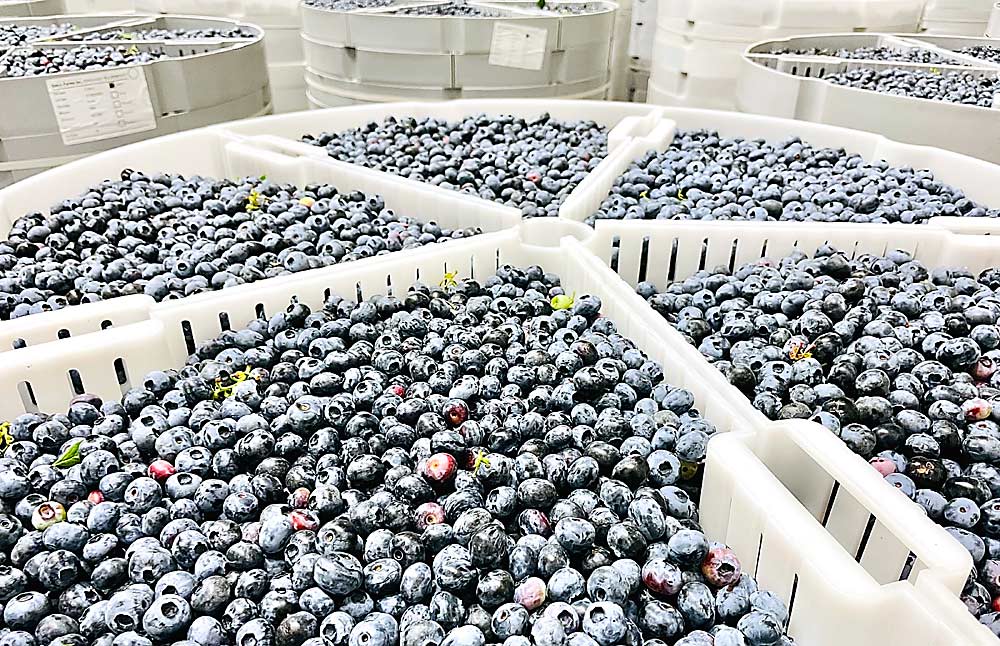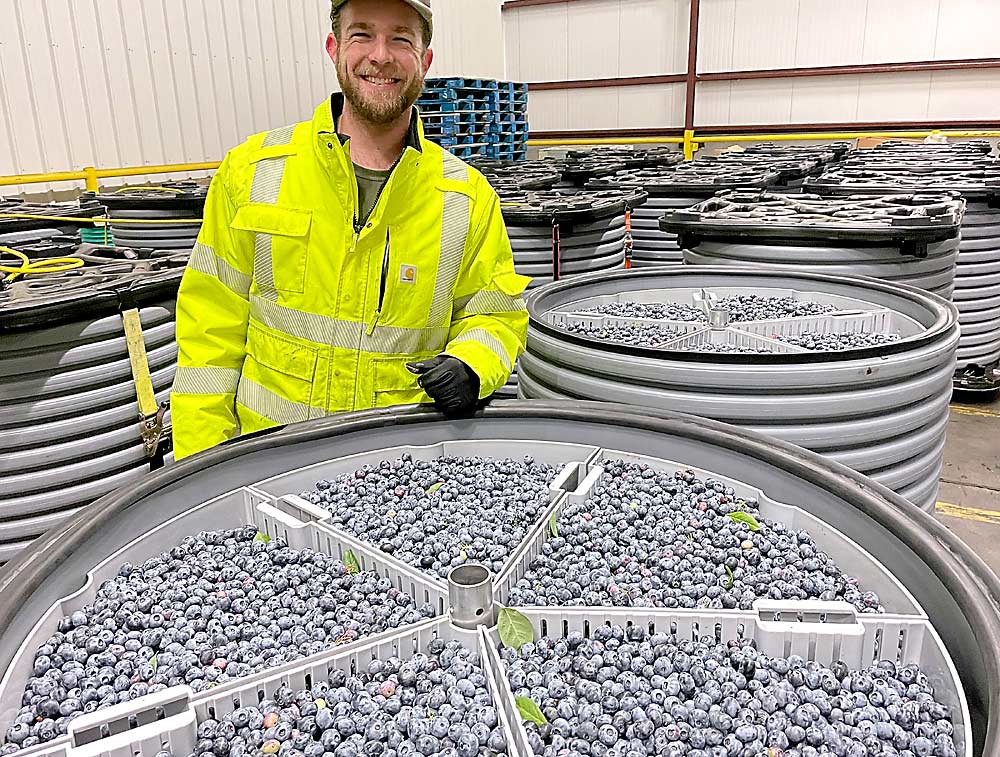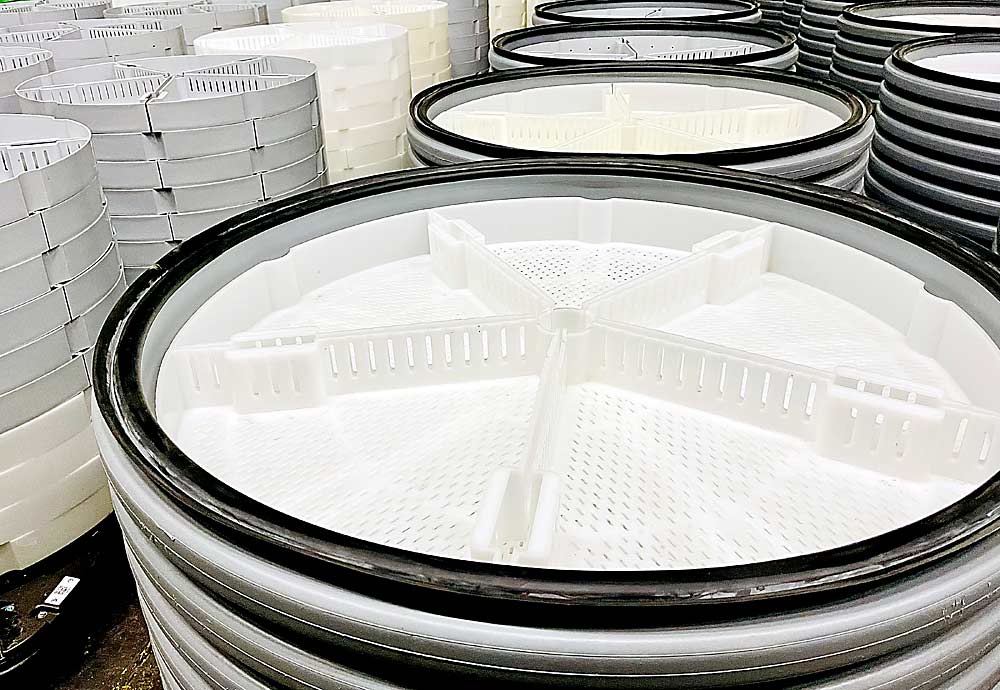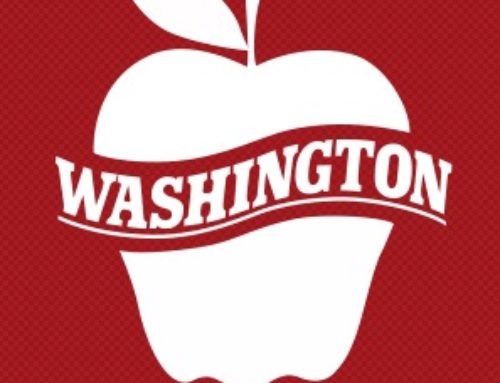
As the global blueberry industry develops into a year-round market, gaps still pop up.
Filling them can be highly lucrative, as Oasis Farms in Prosser, Washington, found out last season, with the help of a new postharvest storage technology.
“It was a great year to have fruit in storage,” said Brenton Roy, owner of Oasis Farms. “We felt like the packouts were indistinguishable to being packed immediately.”
His team put 20,000 pounds of blueberries into low-pressure controlled-atmosphere chambers known as RipeLockers at harvest in July. Six weeks later, the fruit sold for premium prices in September, as a difficult growing season in Peru reduced the fall fruit available in the U.S. market.
“In hindsight, I wish we had done more,” said Chad Don, Oasis’ blueberry program manager. “It depends on how the market is doing, but (with the technology) we can move a large volume of fruit out of the peak to a later part of the year.”
Don said the RipeLocker technology can protect the blueberry quality about twice as long as modified atmosphere bags, up to eight weeks, and the continuous monitoring reduces the risk involved in storing perishable produce.

Each individual chamber, sized for pallet-friendly transport, has its own oxygen, carbon dioxide and pressure sensors, which the company tracks and adjusts remotely.
“If I see the respiration going really high, if I can see the fruit senescing, we alert the grower, who can decide to sell it now or give it more slack,” in the form of increased oxygen to see if the fruit stabilizes, said Brendon Anthony, RipeLocker’s senior director of fruit sciences.
Anthony describes the technology as low-pressure storage that’s created by pumping out air, which reduces oxygen levels to slow down respiration. The sensors enable dynamic control of the storage environment to optimize it for each load of fruit. Also known as hypobaric storage, it is not a new concept in research, but RipeLocker’s patented chamber design makes it possible on a commercial scale. The approach maintains humidity levels and supports rapid gas diffusion. The conditions also serve to control decay and insect pests, which also need oxygen.
Seattle-based RipeLocker was founded in 2016 by George Lobisser, the former CEO of Pace International. Over the past few years, the company has conducted trials with many perishable produce products, from berries to blossoms, to dial in storage specifics and learn where market opportunities could make the technology valuable, said marketing director Selynn Vong.
Anthony said commercial demos with peaches are planned for this season, while research into cherry storage is ongoing.
“We have good success keeping stems green and maintaining weight and firmness,” he said about the cherries, “(but) strategies to maintain stems is not always what you want to maintain fruit quality.”
In blueberries, the technology ensures fruit maintains weight and firmness, so berries are still crunchy up to eight weeks later, Anthony said.

The floral industry is their biggest customer so far, Vong said. As commercial use grows, RipeLocker expects to see the technology travel the global supply chain.
“Shipping blueberries on a boat rather than a plane has 47 times less carbon emissions,” she said, and a far lower cost. “RipeLocker buys you time to do that.”
But the company needs to cost-effectively bring the chambers back, too.
Customers typically rent the chambers for the storage period they need, along with the monitoring service. Some year-round producers, such as the floral industry, opt to purchase, Vong said. She declined to offer pricing specifics, saying that the company offers “zero-risk revenue-sharing arrangements for various commodities.”
At Oasis, there is both a cost to the technology and the additional labor to use it, Don said.
“There’s no change in the field from the harvest perspective,” he said. “It’s another whole process when we are running fruit in the facility.”
The pie-wedge trays pose no problem in the field, where workers fill up the chambers directly. Oasis then cools and seals them. The challenge arrives when packing the fruit: Each triangular tray must be dumped into the packing line by hand, as opposed to the automatic system used for their typical rectangular trays.
Oasis learned about the technology in 2020 and first started testing in 2021. It also uses RipeLockers to ship fresh hops to brewers across the country. Roy was so intrigued he decided to invest and now sits on the board of directors as well.
“It’s a fundamental change in how well we can store things,” he said. “It’s an ag tech startup; I think the future is yet to be written on the value that can be brought by storing things at a higher quality, and we are just at the beginning of figuring that out.”
—by Kate Prengaman






Leave A Comment